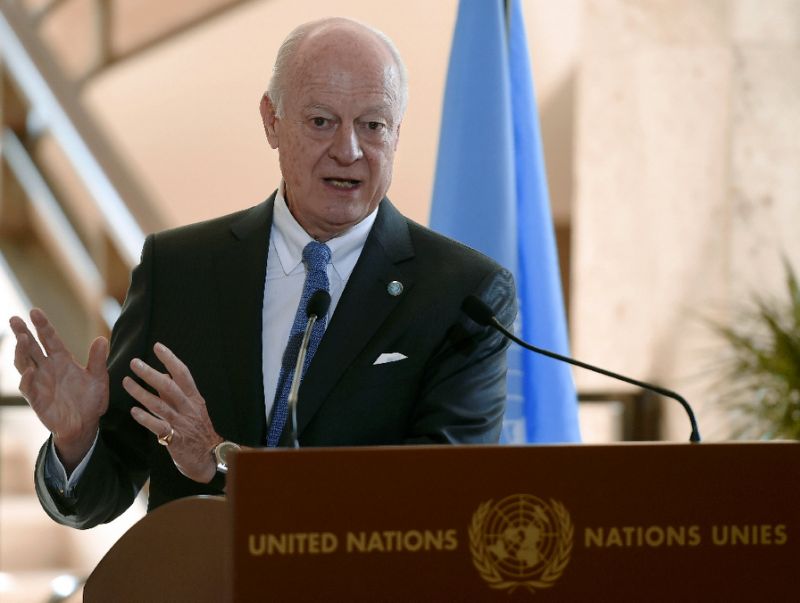Beirut- UN Special Envoy Staffan de Mistura announced on Thursday delaying next week’s intra-Syrian talks in Geneva to next fall, calling on Russia and Iran to use their powers for convincing the Syrian regime to attend.
“Regarding the (Syrian) government, we are counting very much on Russia, on Iran, on anyone who has got major influence, and on the government of Syria to be ready finally to initiate when they are invited to Geneva, a genuine, direct negotiation with whatever (opposition) platform comes out,” he said.
De Mistura also hoped that the Syrian crisis could witness significant changes starting next month.
The delay announced on Thursday came as the Syrian opposition heads towards forming a single delegation with different visions to attend a meeting scheduled next Sunday in Riyadh ahead of holding the “Riyadh 2” conference in October.
The delegation would include members of the High Negotiation Committee (HNC) and the two platforms of Moscow and Cairo.
The Cairo platform already announced it would participate in Sunday’s meeting.
Meanwhile, leader of the Moscow platform Qadri Jamil told Asharq Al-Awsat on Thursday that the opposition group would also attend the meeting and that it sent its response to the HNC on Thursday.
Member of the Cairo Platform Jamal Suleiman told Asharq Al-Awsat that the Riyadh conference aims at restarting talks between the three platforms and would mainly focus on unifying the opposition and on discussing the government, the constitution, elections and a common understanding of international resolutions, ahead of reaching positive outcomes.
Sources warned Moscow on Thursday from trying to circumvent the Geneva talks and enforce new decisions, such as forming a new expanded government in Syria.
Although sources from the opposition Syrian National Coalition saw the possible dispatch of one delegation to the meeting, they said this decision does not mean that the Syrian opposition would also have a unified position vis-à-vis the events in Syria, particularly the fate of Bashar Assad.
Meanwhile, the Syrian Democratic Forces (SDF) said on Thursday the US military will remain in northern Syria long after the militants are defeated, predicting enduring ties with the Kurdish-dominated region.
“They have a strategy policy for decades to come. There will be military, economic and political agreements in the long term between the leadership of the northern areas (of Syria) … and the US administration,” SDF spokesman Talal Silo told Reuters.
